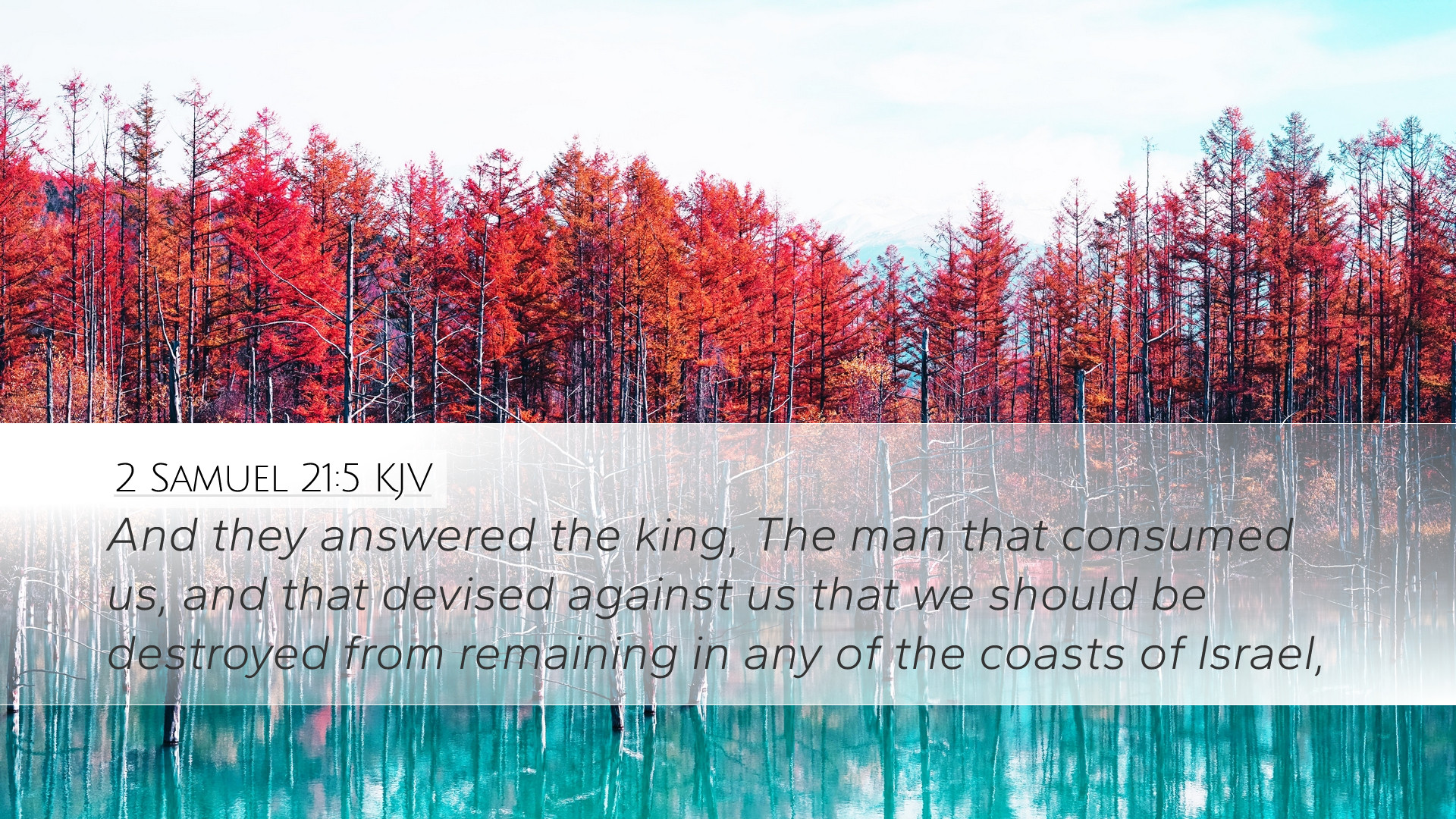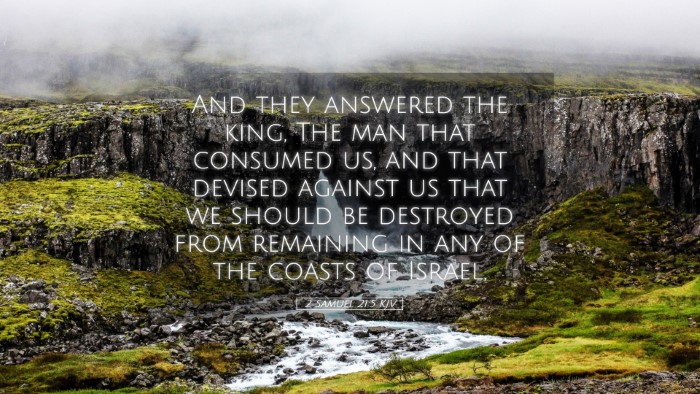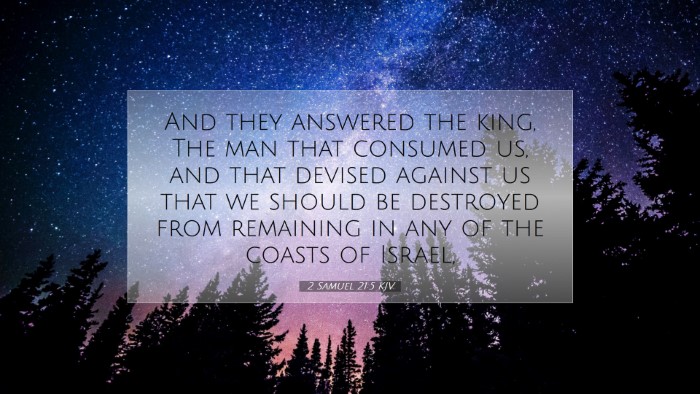Commentary on 2 Samuel 21:5
Bible Verse: “And they answered the king, The man that consumed us, and that devised against us, that we should be destroyed from remaining in any of the coasts of Israel, is that man’s head, even Saul, who did not come to his funeral.”
Context and Background
The passage comes amid a narrative that addresses the aftermath of King Saul's reign and the consequences of his actions on the Gibeonites, a group with whom Israel had formed a covenant. The Gibeonites, referred to here as a remnant of the Amorites, had been wronged by Saul, who attempted to annihilate them, possibly in an effort to assert nationalistic zeal. This context highlights the gravity of Saul's violation of God's covenant and sets the stage for the ensuing decisions made by King David.
Exegesis of the Verse
The verse presents the Gibeonites' direct response to King David when he inquires about the wrongs committed against their people. Their assertion that Saul "consumed" them emphasizes the severity of his actions. Notably, the mention of Saul's "head" symbolizes both literal and figurative leadership—the head of the nation who brought destruction upon a faithful people.
Key Insights
- Character of Saul: Saul's actions are portrayed as driven by a spirit of destruction rather than justice or mercy. This comment reflects the broader biblical theme of how leadership is to be exercised—the good king should protect and uphold the covenant, not betray it.
- Nature of Sin: The Gibeonites' complaint can be seen as a representation of sin’s destructive power on community relationships and God's redemptive law, which necessitates restitution and reconciliation.
- David's Role: David, as the anointed leader, seeks to right the injustices committed during Saul's reign. This moment reveals the weight of the king's office and the moral responsibility that accompanies it.
Insights from Public Domain Commentaries
Matthew Henry
Matthew Henry emphasizes the importance of the king’s duty to address wrongs done to the afflicted. He notes that David's inquiry into the Gibeonites' grievances reflects a monarch's moral obligation to seek justice and restore equitable relations. Henry highlights the idea that God's judgement was involved in the plight of Israel during a famine, suggesting that unresolved sin had ripple effects on the kingdom at large.
Albert Barnes
Albert Barnes approaches this verse by discussing its historical significance in the narrative of Israel’s covenant with the Gibeonites. He asserts that the actions taken against the Gibeonites by Saul were not only politically motivated but also indicative of a violation against divine commands. Barnes notes the implication of Saul’s disregard for this covenant and underlines a significant theme in biblical leadership: accountability before God.
Adam Clarke
Adam Clarke provides a more detailed analysis of the cultural practices regarding leaders in ancient Israel. He remarks on how Saul's conduct was an abominable breach of the covenant, leading to tragic repercussions not only for the Gibeonites but also for Israel—a nation that had formerly sworn to protect them. Clarke sees this verse as a testament to the pervasive consequences of leadership failure and divine justice, where the actions of one can lead to widespread suffering.
Theological Implications
This verse and its commentary offer profound insights into the nature of divine justice, the weight of corporate responsibility, and the expectations placed upon leaders. The responses of the Gibeonites underscore the principle that leaders must account for their actions, particularly toward those who are marginalized or wronged.
Application for Modern Context
- Leadership and Accountability: Current leaders in church and society are reminded of their responsibility to act justly and protect the vulnerable, echoing the biblical call for a servant-hearted leadership.
- Community Relationships: This passage invites introspection about relationships among communities, urging reconciliation where past grievances might have created estrangement.
- Understanding of Justice: It stirs contemplation about the nature of justice in the life of faith, poised between the demand for right-making actions and the mercy that also must govern restorative efforts.
Conclusion
2 Samuel 21:5 serves as a pivotal point that brings to light the themes of justice, accountability, and the consequences of leadership. The insights provided from historical commentaries remind the reader of the timeless nature of biblical truths and their applicability in both ancient and contemporary contexts. For pastors, students, and scholars, this passage offers rich soil for theological reflection and practical application in the unfolding narrative of God's covenant people.


